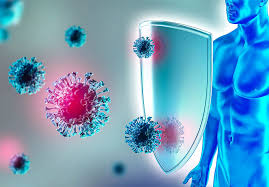
Your immune system is your body’s natural defense network—designed to recognize threats, neutralize danger, and restore balance. But in the 21st century, many of us are unknowingly under constant attack. The real challenge? Not just boosting the immune system, but protecting it from what weakens it.
1. Remove Ultra-Processed Foods
Highly processed foods packed with refined sugars, seed oils, artificial additives, and preservatives inflame the gut lining, impair nutrient absorption, and suppress immune response. A steady diet of these foods can lead to chronic low-grade inflammation, metabolic dysfunction, and poor immune regulation.
Refined sugar intake has been shown to significantly decrease neutrophil activity—the body’s frontline immune cells.
Remove: sodas, packaged snacks, seed oil-based fried foods, artificial sweeteners, and anything with more than five unrecognizable ingredients.
2. Remove Chronic Sleep Deprivation
Sleep is when your immune system resets. Lack of deep, restorative sleep reduces natural killer (NK) cell function, increases cortisol, and weakens the body’s ability to fight infections.
Remove: blue-light exposure at night, late caffeine, inconsistent sleep schedules, and screen time after 9 p.m.
3. Remove Environmental Toxins
Everyday items like plastic containers, non-stick pans, scented candles, and cleaning products can contain endocrine-disrupting chemicals (EDCs) like BPA, phthalates, and parabens. These toxins burden detox organs and interfere with immune communication pathways.
Remove: plastics (especially when heated), conventional air fresheners, and chemical-based cosmetics and household cleaners.
4. Remove Unmanaged Chronic Stress
Stress isn’t just mental—it’s chemical. Cortisol, the body’s stress hormone, when elevated chronically, reduces lymphocyte production and blunts immune signaling. This leaves you more susceptible to infections, autoimmunity, and inflammatory conditions.
Remove: excess commitments, overtraining, toxic relationships, and media overstimulation. Replace with prayer, breathwork, Scripture meditation, nature walks, or stillness.
5. Remove Sedentary Lifestyle Patterns
A sedentary body creates stagnant lymph flow. Movement is how the immune system circulates critical components like lymphocytes and macrophages throughout the body. Without regular motion, your immune defense becomes sluggish and inefficient.
Remove: prolonged sitting without breaks, lack of outdoor movement, and screen-bound weekends. Even 10-minute movement snacks throughout the day can reboot circulation.
6. Remove Excess Alcohol and Nicotine
Both alcohol and nicotine suppress immune signaling and compromise the integrity of mucosal barriers (like your lungs and gut)—key frontlines in immune defense. They also reduce vitamin and mineral absorption, especially zinc and vitamin C.
Remove: frequent alcohol use (especially binge drinking), smoking, and vape products that expose the body to oxidative stress and inflammation.
Summary
To protect your immune system:
- Remove foods that inflame.
- Remove habits that suppress rest.
- Remove toxins that disrupt.
- Remove stress that overloads.
- Remove inactivity that stagnates.
- Remove substances that impair.
Strengthening the immune system starts by subtracting the things that tear it down.
Citations
- Sugars and Immune Function
- Sánchez, A., Reeser, J. L., Lau, H. S., et al. (1973). Role of sugars in human neutrophilic phagocytosis. The American Journal of Clinical Nutrition, 26(11), 1180–1184.
https://doi.org/10.1093/ajcn/26.11.1180
- Sánchez, A., Reeser, J. L., Lau, H. S., et al. (1973). Role of sugars in human neutrophilic phagocytosis. The American Journal of Clinical Nutrition, 26(11), 1180–1184.
- Sleep and Immune Regulation
- Besedovsky, L., Lange, T., & Born, J. (2012). Sleep and immune function. Pflügers Archiv – European Journal of Physiology, 463(1), 121–137.
https://doi.org/10.1007/s00424-011-1044-0
- Besedovsky, L., Lange, T., & Born, J. (2012). Sleep and immune function. Pflügers Archiv – European Journal of Physiology, 463(1), 121–137.
- Environmental Toxins and Immune Health
- Corsini, E., Sokooti, M., Galli, C. L., Moretto, A., & Colosio, C. (2013). Immunotoxicity of pesticides: A review. Toxicology and Applied Pharmacology, 268(2), 163–171.
https://doi.org/10.1016/j.taap.2013.01.011
- Corsini, E., Sokooti, M., Galli, C. L., Moretto, A., & Colosio, C. (2013). Immunotoxicity of pesticides: A review. Toxicology and Applied Pharmacology, 268(2), 163–171.
- Stress and Immune Suppression
- Dhabhar, F. S. (2009). Enhancing versus suppressive effects of stress on immune function. Neuroimmunomodulation, 16(5), 300–317.
https://doi.org/10.1159/000216188
- Dhabhar, F. S. (2009). Enhancing versus suppressive effects of stress on immune function. Neuroimmunomodulation, 16(5), 300–317.
- Physical Activity and Immune Health
- Nieman, D. C., & Wentz, L. M. (2019). The compelling link between physical activity and the body’s defense system. Journal of Sport and Health Science, 8(3), 201–217.
https://doi.org/10.1016/j.jshs.2018.09.009
- Nieman, D. C., & Wentz, L. M. (2019). The compelling link between physical activity and the body’s defense system. Journal of Sport and Health Science, 8(3), 201–217.
- Alcohol and Immune Function
- Pasala, S., Barr, T., & Messaoudi, I. (2015). Impact of alcohol abuse on the adaptive immune system. Alcohol Research: Current Reviews, 37(2), 185–197.
https://www.ncbi.nlm.nih.gov/pmc/articles/PMC4590612/
- Pasala, S., Barr, T., & Messaoudi, I. (2015). Impact of alcohol abuse on the adaptive immune system. Alcohol Research: Current Reviews, 37(2), 185–197.
Leave a Reply